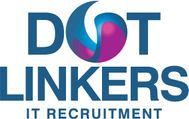Senior Python Developer
New
Python

Type of work
Full-time
Experience
Senior
Employment Type
Permanent
Operating mode
Remote
Tech stack
Machine Learning
AI
Python
Job description
About the role
Join our dynamic co.brick Observe team, where you'll have the opportunity to help develop an innovative AI-driven platform. We are combining data monitoring, anomaly detection, predictive analytics, and user support powered by Generative AI.
You’ll also contribute to AI/ML Proof of Concepts (PoCs) and MVP projects, utilizing cutting-edge technologies in a fast-paced, collaborative environment.
This is an exciting opportunity to shape the future of AI-powered user interactions and make a real impact. If you thrive in a startup-like atmosphere and are passionate about driving innovation, we’d love to have you on board!
Requirements
- Experience with asynchronous programming in Python (asyncio, aiofiles, aiohttp)
- Experience with REST API frameworks (FastAPI)
- Solid programming skills in Python, familiarity with version control systems (e.g., Git), knowledge of various database systems and data warehousing concepts (e.g., PostgreSQL, MongoDB)
- Hands-on experience in generative AI/NLP solutions and Machine Learning model development and deployment.
- Familiarity with semantic knowledge bases and Retrieval-Augmented Generation (RAG) processes, along with experience in integrating AI solutions for knowledge inference and support systems.
- Expertise in data inference models and developing automated recommendation systems, with a focus on optimizing predictions and enhancing system intelligence.
- Experience working in cross-functional teams, collaborating with data scientists and engineers to ensure smooth integration of AI solutions into complex systems.
- Strong knowledge of conversational AI agents, including the development and optimization of personalized natural language-based support systems.
Preferred Qualifications:
- Nice to have: Experience with agentic architecture for GenAI applications (AutoGen, Langraph)
- Proficiency with LLM-specific models, prompt engineering, libraries, and frameworks, such as Hugging Face, LlamaCloud, or LLMs APIs (eg. OpenAI API), and experience fine-tuning large language models for specialized tasks.
- Experience with MLOps tools relevant to generative AI, such as LangChain, LlamaIndex, for managing pipelines, prompt engineering, and scaling LLM deployments.
- Strong understanding of retrieval-augmented generation (RAG) systems, with experience in building and managing semantic knowledge bases that leverage AI for organizing, retrieving, and maintaining data-driven insights.
- Strong analytical and problem-solving skills and excellent communication and teamwork abilities to collaborate effectively with cross-functional teams.
- Experience and knowledge of AI/ML models for anomaly detection, prediction, and similar tasks in observability systems is a plus, with the ability to leverage these models to enhance system reliability and proactively resolve issues.
- Experience with prototyping frameworks such as Streamlit is also a plus, to enable rapid development and deployment of user interfaces for prototype applications and functionalities.
Responsibilities
- Design and implement scalable backend services in Python that support, ML and generative AI solutions, for knowledge inference and user support, including developing conversational React agents capable of understanding and responding in natural language.
- Develop and maintain semantic knowledge bases using Retrieval-Augmented Generation (RAG) processes to enhance the system's ability to provide accurate, contextually relevant information and support.
- Continuously improve data inference models to enable better predictions, and automated recommendations, contributing to smarter system functionalities.
- Collaborate with cross-functional teams to ensure the seamless integration of generative AI and semantic knowledge solutions into the broader system (such as Observe as a complex observability system), improving overall performance and user experience.
- Development of AI/ML Proof of Concepts (PoCs) and Minimum Viable Products (MVPs), showcasing innovative solutions and demonstrating the potential of new technologies in real-world applications.
- Provide ongoing support, ensuring alignment with the latest AI-driven methodologies and tools.
- Stay informed about emerging AI technologies, trends, and best practices. Apply this knowledge to improve data engineering processes and techniques continuously.
4 820 - 5 374 USD
Gross/month - Permanent
Apply for this job
Informujemy, że administratorem danych jest co.brick Sp. z o.o. z siedzibą w Gliwicach, ul. Kaczyniec 9 (dalej jako "adm...more
Check similar offers



